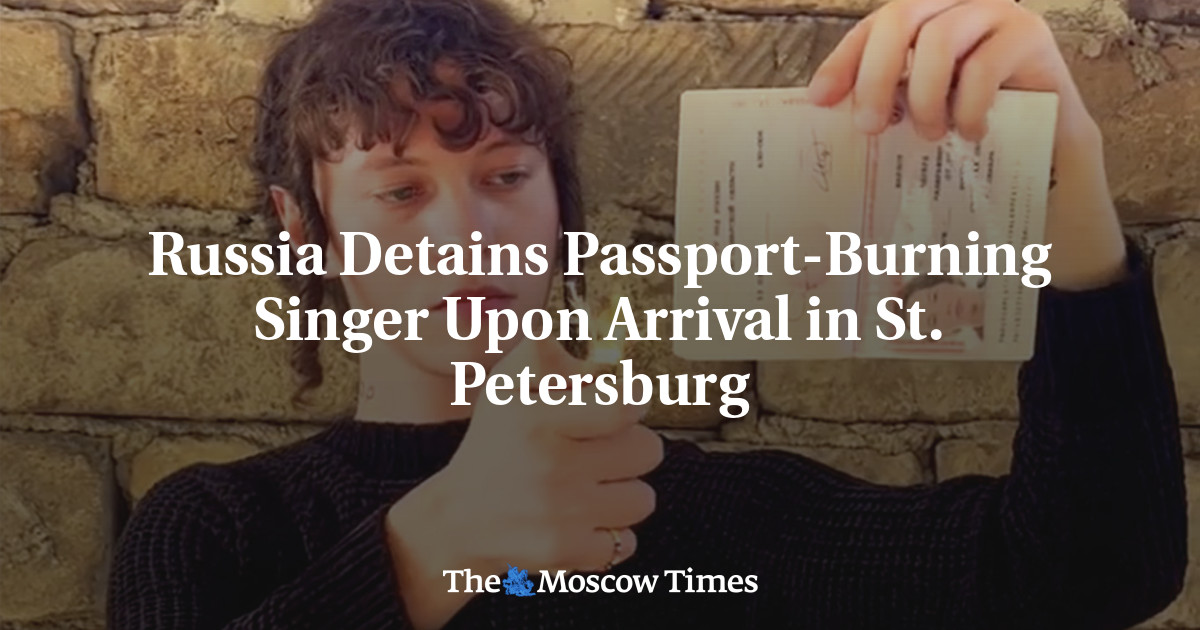
Russian singer Eduard Sharlot was detained upon his arrival in St. Petersburg from Armenia, where he had published a video of himself burning his Russian passport, media reported Wednesday.
In the passport-burning video published on Instagram in June, Sharlot, 25, uses a lighter to set his passport aflame before addressing the Ukrainian government, saying in the caption that he opposes the war and wants to go to Kyiv.
The video’s caption was later edited to simply say “I HAD AN ORGASM.”
His arrest follows a complaint filed by Yekaterina Mizulina, head of the Kremlin-aligned Free Internet League, to Russia’s Investigative Committee and Interior Ministry this month, the U.S.-funded Radio Svoboda news outlet reported.
The complaint asked them to investigate “the actions of the blogger Sharlot, who publicly discredited the Russian army, offended the feelings of believers and deliberately burned the passport of a Russian citizen.”
Sharlot has reportedly been charged with minor hooliganism, premeditated destruction of an official ID, and discrediting the Russian Armed Forces. He faces up to 15 days in jail and fines of up to 50,300 rubles ($570).
In a subsequent video posted in July, Sharlot sings to the Federal Security Service (FSB) and destroys a confetti-filled, vaguely humanoid figure labeled “FSB.”
The caption details how, after the passport burning, someone from the FSB tricked Sharlot into sharing his thoughts and plans by acting as though he would collaborate in anti-war activities and help Sharlot move to Kyiv.
A post from this week shows his return ticket, with a caption that says he is coming back to Russia to fight for Russian-language culture and release a new album “in the context of a non-political routine.”
A video published by Ren-TV on Wednesday showed Sharlot escorted in handcuffs through Pulkovo Airport by what appears to be at least six law enforcement officers.
Following the arrest, police recorded a video in which Sharlot apologizes for burning his passport, saying he misunderstood what was happening and had been “mistakenly obsessed with false information.”
“Sorry,” he says. “I won’t do it again.”
A St. Petersburg court on Wednesday sentenced him to 13 days of administrative arrest on charges of swearing and harassing citizens, without ruling on his other charges.
The Kremlin’s wartime crackdown on dissenting voices has expanded to target a widening group of people this year.
Figures ranging from prominent opposition mayor Yevgeny Roizman and a man who dreamed about Ukrainian President Volodymyr Zelensky to a pro-war journalist and a woman who got into an argument at a Moscow coffee shop have been charged with discrediting the army.